External links
Soap operas in the United Kingdom | |||||||||||||||
|---|---|---|---|---|---|---|---|---|---|---|---|---|---|---|---|
| TV soaps |
| ||||||||||||||
| Radio soaps | |||||||||||||||
| Defunct |
| ||||||||||||||
| Miracles Take Longer | |
|---|---|
| Genre | Drama |
| Created by | John Kershaw |
| Starring | Patsy Byrne Lynette Davies |
| Country of origin | United Kingdom |
| Original language | English |
| No. of series | 1 |
| No. of episodes | 36 |
| Production | |
| Producers | Brenda Ennis Michele Buck |
| Running time | 30 minutes |
| Original release | |
| Network | ITV |
| Release | 9 January – 15 May 1984 |
| Related | |
Miracles Take Longer is a United Kingdom drama series broadcast on ITV from January 1984 to May 1984 made by Thames Television.
The drama depicted the life and cases dealt with by a branch of the Citizens Advice Bureau.
The programme was networked at 15.30 on Mondays and Tuesdays excluding Bank Holidays and the March Budget. TVS and Central aired it on different days.
Only one series was made and was replaced by the UK soap Gems and different Australian serials around the country.
Miracles Take Longer was devised by John Kershaw. The series scriptwriters included: Robert Holmes and Johnny Byrne.

"Fourth World" was a metaseries of connected comic book titles written and drawn by Jack Kirby and published by DC Comics from 1970 to 1973. Although they were not marketed under this title until the August–September 1971 issues of New Gods and Forever People, the terms Fourth World and Jack Kirby's Fourth World have gained usage in the years since. Kirby created the Fourth World concept in the 1970s. The series is a science-fiction based mythology that revolves around ancient space deities known as the New Gods. The New Gods are similar to the gods of Earth lore.
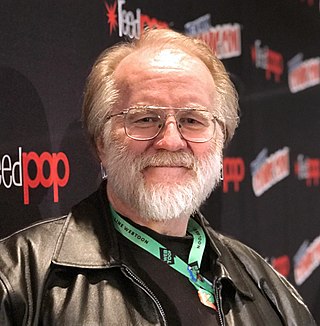
John Lindley Byrne is a British-born American writer and artist of superhero comics. Since the mid-1970s, Byrne has worked on many major superheroes; with noted work on Marvel Comics's X-Men and Fantastic Four. Byrne also facilitated the 1986 relaunch of DC Comics's Superman franchise with the limited series The Man of Steel, the first issue of which featured the comics' first variant cover.

77 Sunset Strip is an American television private detective drama series created by Roy Huggins and starring Efrem Zimbalist Jr., Roger Smith, Richard Long and Edd Byrnes. Each episode was one hour long when aired with commercials. The show ran from 1958 to 1964. The character of detective Stuart Bailey was first used by writer Huggins in his 1946 novel The Double Take, later adapted into the 1948 film I Love Trouble.
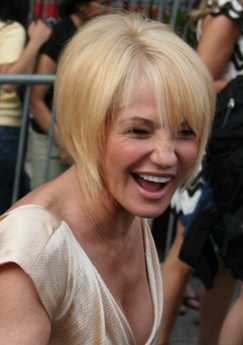
Ellen Rona Barkin is an American actress. Her breakthrough role was in the 1982 film Diner, and in the following years, she had starring roles in films such as Tender Mercies (1983), Eddie and the Cruisers (1983), The Adventures of Buckaroo Banzai Across the 8th Dimension (1984), The Big Easy (1986), Johnny Handsome, and Sea of Love.

Mary Rose Byrne is an Australian actress. She made her screen debut in the film Dallas Doll (1994), and continued to act in Australian film and television throughout the 1990s. She obtained her first leading film role in The Goddess of 1967 (2000), which brought her the Volpi Cup for Best Actress, and made the transition to American cinema in the small role of Dormé in Star Wars: Episode II – Attack of the Clones (2002), followed by parts in Hollywood productions of Troy (2004), 28 Weeks Later (2007) and Knowing (2009).

Mary Martha Byrne is an American actress, singer and television writer. She played the role of Lily Walsh Snyder on the soap opera As the World Turns from 1985 to 1989, then again from 1993 to 2008; as well as, from 2000 to 2003, Lily's twin sister, Rose D'Angelo. Byrne has also appeared in other stage, television and movie roles, including the title role in the 1983 film Anna to the Infinite Power. She is currently executive producer of the digital drama series Anacostia, where she has played the role of Alexis Jordan since 2011. Byrne has won three Daytime Emmy Awards for acting.

Kelly Jo Minter is an American actress. Minter made her acting debut as "The Pilot" in an after-school short movie of the same name in 1984. She made her film debut as Lorrie in Mask (1985). She subsequently portrayed Denise Green in Summer School (1987), Maria in The Lost Boys (1987), Charlotta in Miracle Mile (1988), Yvonne Miller in A Nightmare on Elm Street 5: The Dream Child (1989), LaDonna in House Party (1990), Cheryl in Popcorn (1991), and Ruby Williams in The People Under the Stairs (1991). Outside of film, Minter has made guest appearances on a variety of television series including Hill Street Blues (1987), A Different World (1988), Martin (1993), ER (1996), Providence (2001), and Strong Medicine (2002). In 2010, she appeared as herself in the documentary Never Sleep Again: The Elm Street Legacy.

Mary Megan Winningham, known professionally as Mare Winningham, is an American actress and singer-songwriter. She is the recipient of two Primetime Emmy Awards and has been nominated for an Academy Award, two Golden Globe Awards and two Tony Awards.

Edward Byrne Breitenberger, known professionally as Edd Byrnes, was an American actor, best known for his starring role in the television series 77 Sunset Strip. He also was featured in the 1978 film Grease as television teen-dance show host Vince Fontaine, and was a charting recording artist with "Kookie, Kookie ".

Miracles is an American mystery-drama television series starring Skeet Ulrich and Angus Macfadyen that aired on ABC from January 27 to December 26, 2003. The series created by Richard Hatem and Michael Petroni, the series was dubbed a "spiritual version of The X-Files" by its creators. Following the pilot, David Greenwalt, co-creator of Angel served as the show's executive producer and head writer for the remaining twelve episodes.
A secret is information kept hidden.
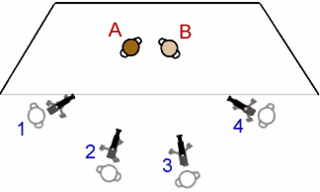
The multiple-camera setup, multiple-camera mode of production, multi-camera or simply multicam is a method of filmmaking and video production. Several cameras—either film or professional video cameras—are employed on the set and simultaneously record or broadcast a scene. It is often contrasted with a single-camera setup, which uses one camera.
Sharron Miller is an American television and film director, producer, and screenwriter. She is one of the pioneering women directors who worked regularly in mainstream Hollywood in the 1970s and 1980s. In 1984 she was the first woman ever to win the coveted Directors Guild of America Award for directing a narrative (non-documentary) work.

Lily Walsh is a fictional character from the CBS daytime soap opera, As the World Turns. Most notably played by Martha Byrne from May 1985 to September 29, 1989 and again from April 1993 to April 22, 2008, the character was originated in June 1984 by Lucy Deakins. Heather Rattray stepped into the role from December 24, 1989 to December 24, 1992. In the show's final two years, Lily was recast with Noelle Beck and she aired from May 8, 2008 after the much-publicized departure of Byrne until its final episode on September 17, 2010. Byrne is considered to be one of the most recognized faces of daytime television and is often called a "superstar" of soap opera history.
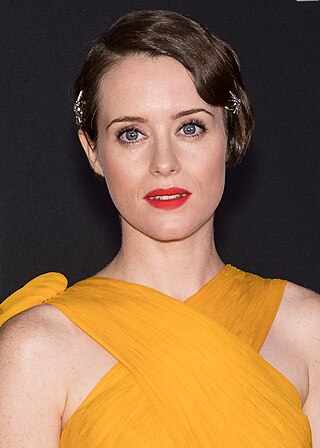
Claire Elizabeth Foy is a British actress. She is best known for her portrayal of the young Queen Elizabeth II in the Netflix drama series The Crown (2016–2023), for which she won a Golden Globe and two Primetime Emmy Awards.
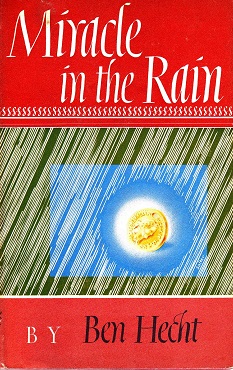
Miracle in the Rain is a United States home front during World War II-themed novella by veteran screenwriter Ben Hecht, published in the April 3, 1943 issue of The Saturday Evening Post weekly magazine then, within six months, issued in booklet form and, thirteen years later, following four live television productions which reduced the story to plot essentials, was adapted by him into a Warner Bros. feature film released on March 31, 1956.

The Miracle is a 1991 drama film written and directed by Neil Jordan. It stars Beverly D'Angelo, Donal McCann, and Niall Byrne. It was entered into the 41st Berlin International Film Festival.
John Hugh d'Allenger Kershaw was a British screenwriter and script editor. He edited the entire first season of the television program Bergerac, and contributed to others including The Bill and Armchair Theatre.
RTÉ One is an Irish free-to-air flagship television channel owned and operated by RTÉ. It is the most-popular and most-watched television channel in the country and was launched as Telefís Éireann on 31 December 1961, it was renamed RTÉ in 1966, and it was renamed as RTÉ 1 upon the launch of RTÉ 2 in 1978. It is funded partly by the government's licence fee; the remainder of the funding is provided by commercial advertising. Because RTÉ is funded partly by the licence fee it shows considerably fewer advertisements than most other channels available in Ireland and Northern Ireland.